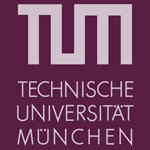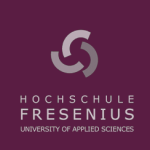Employee Motivation Theories
“Total work compensation has an influence on worker motivation, but it is not a significant factor affecting the behaviors … Leaders cannot force motivation. There is no causal relationship. Leaders can mold an environment that allows workers to motivate themselves, but typical attempts to extrinsically motivate workers are counterproductive.”
David E. Frick, “Motivating the Knowledge Worker” (2011)

What is this all about?
Since the early work-for-goods bartering systems, the purpose of salary has been (dependent on the mutual power relationship) a more or less fair currency for the physical and intellectual input provided by the worker. While some pay-for-performance elements were already part of early forms of feudal systems, in our modern economy we have inverted the causal logic of this equation between outcome and reward. It has gradually become the widespread conviction that extrinsic reward determines outcome. Consequently, business has idealized bonus systems as the “passepartout” to employee motivation andincreased performance.
But this reversed causality cannot be upheld when considering the past decades of motivational research. As long as half a century ago, salary was clearly identified by Herzberg as a “hygienic factor” in the work context – a necessary prerequisite, but without relevant motivational impact. In the meantime it has been widely proven through motivation theories that compensation is not a significant factor affecting employee behaviors, especially for creative and complex tasks.
Gradually recognizing this widening gap, an increasing number of alternative criteria-sets have been composed during the past years that claim to be the key to employee motivation in the knowledge economy. However, as they are all methodologically based on a more or less broad empirical basis that isderived from employee opinion polls, they all suffer from a natural bias which Easterlin[1] and others have intensively demonstrated for this type of approach: a strong focus on short term desires and a broad negligence of major framework conditions which are taken for granted or interpreted as out of personal control.
Looking alternatively at the scientific research, out of the wild proliferation of attempts to explain mechanisms of human motivation in a work environment, two – actually partially competing – theories have emerged, which seem to offer at least a robust theoretical foundation to explain intrinsic motivation at work:
- The Self Determination Theory[2] distills the needs for autonomy, relatedness and competence as core to fostering an environment of intrinsic motivation.
- The Hierarchy Model of motivation[3] claims the relevance and mutual influence of the global, the social and the individual context on individual motivation.
As both theories are built on solid empirical validation, instead of looking at them as alternative options it is reasonable to consider them as complementary rather than competing. Consequently, merging them into a 3×3 criteria matrix could create the blueprint for a holistic motivation framework that includes all relevant factors for human motivation in a corporate context.
The Gross Corporate Happiness® model is the first concept that fully reflects this blueprint in the corporate context through its nine domains, and as such is able to form the foundations for a holistic Human Motivation framework for organizations.
[1] Easterlin, Richard A. (July 2001), Income and Happiness: Towards a unified Theory. The Economic Journal
[2]Ryan, Richard M. & Deci, Edward L. (2002). Overview of Self-Determination Theory: An Organismic Dialectical Perspective. Handbook of Self Determination Research
[3] Vallerand, Robert J. & Ratelle, Catherine F. (2002). Intrinsic and Extrinsic Motivation: A Hierarchical Model. Handbook of Self Determination Research









